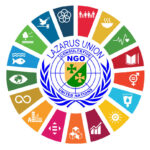GOAL 3: Good Health and Well Being

Despite global improvements in health, for example in the fight against diseases such as AIDS, tuberculosis and malaria, the results in many other areas, such as the reduction of child and maternal mortality, have fallen short of expectations. Health problems should not be considered individually, but. Education and food security have been shown to influence the success of health programmes. Goal 3 includes efforts in child and maternal mortality and around communicable diseases such as AIDS, malaria, and tuberculosis. However, the goal also includes the fight against non-communicable diseases such as diabetes and the prevention of traffic accidents and substance abuse. All people should have access to high-quality health services and medicines and be protected against financial risks. By 2030, universal access to sexual and reproductive health care, including family planning, information, and education, should be ensured.
What is to be achieved?
- Reduce global maternal mortality to below 70 per 100,000 live births by 2030.
- By 2030, end preventable deaths of newborns and children under 5 years of age, with a target for all countries to reduce neonatal mortality to at least 12 per 1,000 live births and under-5 mortality to at least 25 per 1,000 live births.
- By 2030, eliminate AIDS, tuberculosis and malaria epidemics and neglected tropical diseases, and combat hepatitis, waterborne diseases, and other communicable diseases.
- By 2030, reduce premature mortality from non-communicable diseases by one-third through prevention and treatment and promote mental health and well-being.
- Strengthen prevention and treatment of substance misuse, namely substance abuse and harmful use of alcohol.
- Halve the number of deaths and injuries from road traffic crashes globally by 2020.
- By 2030, ensure universal access to sexual and reproductive health care, including family planning, information and education, and mainstream reproductive health into national policies and programmes.
- Achieve universal health coverage, including financial risk protection, access to quality essential health services and access to safe, effective, quality, and affordable essential medicines and vaccines for all.
- By 2030, significantly reduce the number of deaths and illnesses from hazardous chemicals and air, water and soil pollution and contamination.
How is the goal to be achieved?
- Strengthen the implementation of the World Health Organization Framework Convention on Tobacco Control in all countries in an ap-propriate manner.
- Support research and development on vaccines and medicines for communicable and non-communicable diseases affecting mainly developing countries, ensure access to affordable essential medicines and vaccines, in line with the Doha Declaration on the TRIPS Agreement and Public Health, which reaffirms the right of developing countries to
- to take full advantage of the provisions in the Agreement on Trade-Related Aspects of Intellectual Property Rights on flexibilities to protect public health, and to ensure access to medicines for all.
- Significantly increase health financing and the recruitment, education, training, and retention of health workers in developing countries and in particular in least developed countries and small island developing states.
- Strengthen the capacity of all countries, especially developing countries, in early warning, risk reduction and management of national and global health risks.


